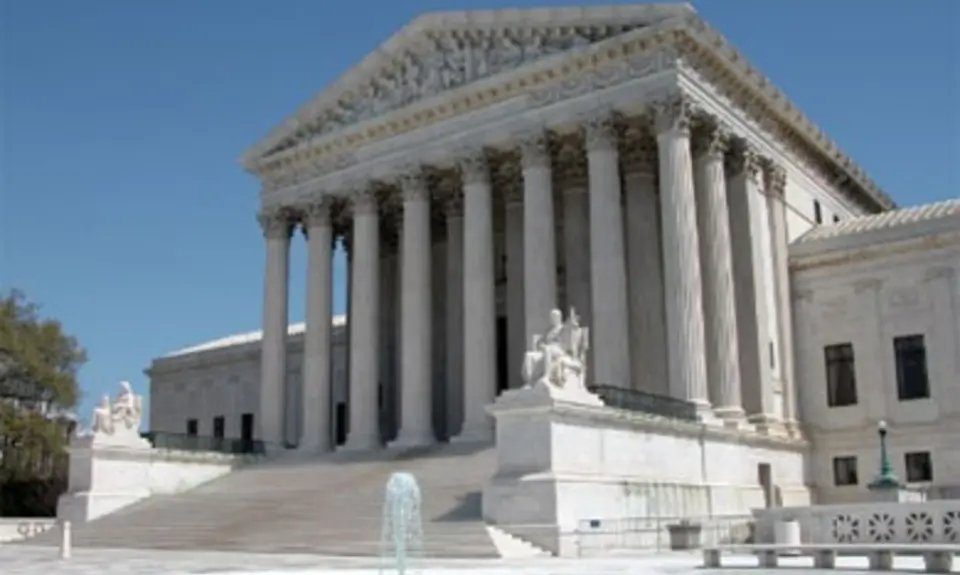Thursday afternoon, PFAW hosted a special member telebriefing on Sebelius v. Hobby Lobby Stores, Inc., a critically important case being argued before the Supreme Court next week that represents the overlap of two important issues: attacks on women's health, and the radical expansion of constitutional "rights" for artificial and increasingly powerful for-profit corporations.. The briefing featured senior fellow Jamie Raskin, who is a respected constitutional scholar at American University and a leading progressive Maryland state senator. Jamie previewed a new report from our affiliate PFAW Foundation: The Gospel of Citizens United: In Hobby Lobby, Corporations Pray for the Right to Deny Workers Contraception.
In Hobby Lobby and a companion case, the Affordable Care Act's contraception provision is being challenged by for-profit corporations regulated by the Act, as well as by the individuals who own the companies. One of the astonishing facets of this case is that for-profit corporations are actually arguing that they – the corporations themselves, totally separate from their owners – have religious liberty rights that are protected by law.
How did we get to a point where for-profit corporations are claiming religious beliefs and rights and not being laughed out of court? Jamie described how Citizens United was a watershed, completely transforming our constitutional jurisprudence and opening the door to Hobby Lobby's arguments. He noted the Tenth Circuit's conclusion that since corporations have First Amendment political speech rights, it follows that they also have religious rights.
Jamie pointed out that no court has ever found that ordinary for-profit corporations have religious rights. And that's what Hobby Lobby is: a profit-making corporation operating more than 500 arts-and-crafts stores with more than 13,000 employees. Quoting Justice Stevens' dissent in Citizens United, Jamie pointed out that "corporations have no consciences, no beliefs, no feelings, no thoughts, no desires." Yet just as that case empowered corporate CEOs to use the corporation's treasury to affect elections, Hobby Lobby threatens to empower corporate officials to impose their own religious beliefs on company employees. In both cases, the power of ordinary people is diminished, as they become more and more subject to the power of corporations.
Jamie also discussed how the implications of Hobby Lobby go far beyond this particular case. If corporations are "ensouled" and found to have religious liberty rights, it opens the door to letting them opt out of anti-discrimination and labor laws their owners don't like. And while Hobby Lobby is a family-owned company where the family ascribes their religion to the corporation, how would you determine the "religion" of a widely-held company like Exxon? Jamie pointed out that the law sees both – the family owned business and the large multinational corporation -- the same.
What can regular people do about all this? PFAW Vice President Marge Baker pointed out that most people don't even know about the dangerous power grab by corporations that the five far-right Supreme Court justices are assisting. It's important to educate our friends, colleagues, and family members about how frequently and dangerously the Supreme Court is bending the law in order to hand power to already-powerful large corporations. And elections matter, because the judges who make these decisions on the Supreme Court and every federal court in the nation are nominated by the president and confirmed by the Senate. With control of the Senate at stake in this year's elections, the results this November will have an enormous impact on the courts.
